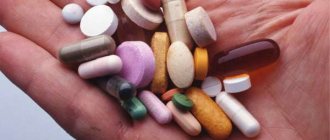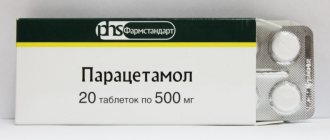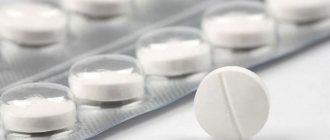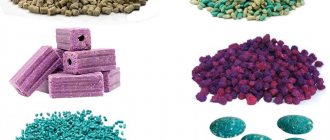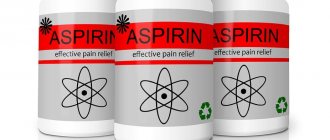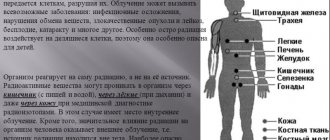Scientists and doctors have been arguing about the dangers and benefits of coffee for the last half century. Numerous studies in recent decades have confirmed the fact that moderate doses of coffee have a beneficial effect on the body of a healthy person and help prevent the development of a number of diseases. The main component of the drink, caffeine, banishes fatigue, gives tone to blood vessels, and improves the secretory activity of the stomach. An overdose causes rapid heartbeat, anxiety, sweating and insomnia.
Emergency life saving
If one of your family or friends is taking a dangerous drug, you need to monitor how much the person has taken.
It is especially important to control the dosage in older people who are prone to forgetfulness. It would be useful to learn the symptoms that indicate that you have taken a lot of the drug
In any case, you cannot do without calling an emergency team
It is important to remember the name of the medications and not throw away the containers of the medications so that doctors can begin detoxification as quickly as possible and minimize the strong negative effect of poisoning
First steps at home
While the ambulance is on its way, you should take a number of independent measures. In particular, if a person started using sleeping pills 30 minutes ago and is still conscious, you need to:
- give as much water as possible to drink;
- induce vomiting;
- give sorbents (activated carbon);
- pour sweet strong tea or milk.
If a person is unconscious, the algorithm of actions is:
- open your mouth and check for tablets - a large amount cannot be swallowed at once;
- if there are signs of breathing or heartbeat, place the patient on his side;
- vomiting began, you need to make sure that the respiratory organs are not clogged.
In case of cardiac arrest, indirect massage is necessary. You need to know this if there is a seriously ill person in the house, whose treatment is carried out with injections or sleeping pills.
Chances of survival
With timely help, the result of poisoning can be reversible
It is only important that the right doctor or person who knows what to do is nearby. With all other factors, there is also a chance to survive, however, severe damage to the brain and internal organs will result in a series of diseases, mental disorders and other troubles
Attention! The consequence of poisoning with sleeping pills is not always death, most often it is a wheelchair, immobility or degradation of mental abilities. This is something you need to think about before you eat a handful of pills at a time - not all medicinal products lead to instant death, more fatal consequences can also occur
The effect of coffee on humans
Coffee beans are a concentrate of a strong alkaloid – caffeine. It is part of many medications, the safest of which are antispasmodics for headaches. In addition to caffeine, the grain contains tannins, resins, essential oils, antioxidants, vitamins and other components in lower content. The lethal dose of coffee is determined precisely by the amount of caffeine taken per 1 kg of body weight.
How can drinking large doses of coffee affect a person’s health and well-being? Negative aspects of well-being, which cannot be ignored, are felt after 3-4 cups of the drink. The pulse quickens, arrhythmia occurs, and blood pressure rises. There may be a headache and unpleasant discomfort in the stomach.
In the presence of chronic diseases, all the described symptoms are felt much more pronounced and can occur after 1-2 cups of the drink. The type of coffee also plays a role. Thus, natural ground coffee made from Arabica contains less caffeine than coffee made from Robusta. It has been proven that milk protein reduces the negative effects of caffeine by partially binding it and preventing it from being absorbed by the body.
Coffee is not poisonous, but it is easy to get poisoned by it
According to scientists, it is very important to assess your own tolerance to caffeine. Thus, women and teenagers are more susceptible to the negative effects of the drink than adult men.
The genetic component is also important. Some people inherit coffee intolerance. Such people react sharply to its use, for example, with headaches, increased blood pressure, allergies and other reactions.
It is important for a person to count on his strength, listen to his own body and not abuse any type of drink, in particular coffee. Then you can maintain health, youth and beauty for a long time
Dangerous and safe dose
Scientists have suggested that for a person weighing about 70 kg, the loading dose is 10-12 g of caffeine. This is approximately 150-200 mg per 1 kg of body weight. That is, on average, for coffee to start killing the body, you need to drink about 15 liters of it in a short period of time. This is an unimaginable amount for a person, but cases of caffeine overdose are not uncommon in history.
Scientists say that you can be poisoned by a drink and bring the body to a near-death state in the following cases:
- stressful conditions;
- smoking;
- alcohol;
- drinking energy drinks;
- the presence of diseases of the cardiovascular system and liver;
- caffeine tolerance.
The invigorating drink has a mild laxative effect, so toxins that poison the body are partially eliminated with urine. In addition, when consuming large doses of caffeine, nausea often develops, leading to vomiting. Scientists believe that this is a protective reaction of the body, which is trying to protect itself and get rid of the poison by emptying the stomach.
But caffeine can also enter the human body in its pure form - and this is a really serious threat. One or maximum two teaspoons of powder is enough for a person to get seriously poisoned. Today, various types of tonic tablets and energy drinks contain a high dose of the alkaloid in combination with other similar substances. They pose a greater threat than an extra cup of coffee. According to statistics, over the past 5 years, 10 times more people have died from an overdose of energy drinks than from coffee poisoning.
Properties and functions of salt
Our usual salt is the most important food additive for humans. It is usually sold in ground form. It happens that table salt contains some additives that can only change its color and taste, but not its basic properties.
Other names for salt: table salt, rock salt, table salt. Or a chemical name like sodium chloride. In modern production, they began to prepare salt with various additives: iodine, fluorine, magnesium, calcium and others. Many housewives will note another beneficial property - the use of salt in canning. Thanks to this, vegetables and fruits can be stored in jars for a long time and delight us with their taste and benefits on cold winter evenings. Despite the fact that there is an opinion about the version that there is a lethal dose of salt for a person, the substances contained in it are vital for the body. For example, sodium contained in salt constantly maintains osmotic pressure, acid-base balance, and water-salt metabolism in the human body at the required level. Thanks to the optimal sodium content, the muscles of the heart, intestines and kidneys, and nerve endings work well. Chlorine is also important for the body: it breaks down fats, removes urea, supports the functioning of the central nervous and reproductive systems, and has a positive effect on bone tissue.
Clinical manifestations of poisoning
An overdose of coffee in adults can begin even after drinking 4-6 mugs of the aromatic drink. Symptoms develop almost unnoticeably. Their intensity increases with further consumption of coffee. At first, a person may not even notice them, attributing poor health to emotional overstrain and severe fatigue. Symptoms characteristic of caffeine poisoning:
- headaches, dizziness, feeling of squeezing of the temples;
- lethargy and drowsiness;
- hypertension;
- polyuria - increased volume of urination;
- increased heart rate;
- increased body temperature due to caffeine intoxication;
- shallow and rapid breathing;
- spontaneous panic;
- redness of the skin on the cheeks;
- heartburn, vomiting, pain in the stomach;
- with significant intoxication, a person can even fall into a coma;
- with intense respiratory and cardiovascular failure, death occurs.
Necessary therapy
Chronic coffee overdose can be treated at home. The doctor will prescribe the medications. The patient is required to comply with several conditions:
- Introduce more ingredients containing calcium, potassium and magnesium into your food.
- To eliminate the negative consequences, completely abandon the drink.
Symptoms of food poisoning are usually relieved by administering an antidote. However, there is no specific antidote for coffee. Therefore, in the inpatient department, doctors provide symptomatic treatment:
- The use of Pipolfen, Morphine, and antipsychotics is indicated. If the patient is in a state of collapse, drugs are administered intravenously.
- For increased heart rate, beta blockers are recommended.
- Reduced blood pressure is raised with Esmolol or Propranolol.
- Reduces high temperature.
- Possibly the use of an oxygen cushion.
As soon as the excess alkaloid leaves the body, the condition stabilizes.
Coffee overdose
If death from drinking an invigorating drink is unlikely, then an overdose can occur. A dangerous dose of coffee is calculated based on two indicators.
- body weight;
- caffeine concentration in the drink.
The human body should not contain more than 7.5 g of the substance; this amount is contained in 50-90 cups of coffee. But even after exceeding the safe dose, drinking about 3-6 cups a day, you can feel the first symptoms of poisoning.
What is a caffeine jitters
Caffeine jitters are the negative effects of a substance on the human central nervous system. 1 glass or 2 cups of coffee is enough to cause this condition. Caffeine jitters have the following symptoms:
- feeling of fear, anxiety;
- incoherent speech;
- red spots on the face;
- nausea, dizziness;
- frequent urge to go to the toilet;
- attacks of rage, tremors of limbs.
Symptoms of intoxication
Drinking coffee drinks or instant coffee can lead to poisoning. The first symptoms of intoxication are:
- red spots on the face or redness of the skin of the entire face;
- unnatural shine in the eyes;
- the person becomes hot and stuffy;
- heart beats faster;
- dizziness, nausea appears;
- limbs shaking, trembling throughout the body.
At the first symptoms of poisoning, you should stop drinking the drink, take activated charcoal and do a gastric lavage.
Late symptoms of intoxication and acute poisoning occur 30 minutes after a large concentration of the substance enters the body. These include:
- frequent urge to go to the toilet;
- human skin has a bluish tint;
- sudden attacks of rage, irritability;
- loss of self-control;
- insomnia and hallucinations.
What to do in case of poisoning
Intoxication may cause the heart to stop beating, leading to death. To prevent this, you should carry out procedures that will help remove caffeine from the body:
- Drink plenty of water. Caffeine causes dehydration of the body; if all else fails and diarrhea occurs, you can add a little salt to the liquid, which blocks the removal of moisture.
- Go outside. Fresh air has a positive effect on the body in case of poisoning. If the patient cannot move, then you can open the window or door. This will help get rid of dizziness and nausea.
- Experts advise eating a banana if you have caffeine poisoning. Potassium contained in the fruit has a positive effect on the cardiovascular system, which will help reduce heart rate.
To obtain advice, you should call a specialist who will determine the degree of danger of poisoning and the possibility of placing the patient in a hospital.
How does caffeine affect the human body?
Caffeine, the main component of coffee, is a strong stimulant of the central nervous system . It also affects the functioning of the heart, blood vessels, and muscle tissue. In moderate dosages, coffee is beneficial for humans, improves performance, and eliminates drowsiness. Below are the main processes that develop in the body as a result of drinking natural coffee:
- Increasing physical and mental performance, it becomes easier for a person to concentrate on work, to concentrate on something specific.
- Regulation of excitation processes in brain tissue. According to studies, caffeine not only stimulates brain function, but also improves it.
- In moderation, coffee helps combat drowsiness and fatigue. Thanks to this drink, it is much easier to wake up and collect your thoughts in the morning.
- Stimulates the functioning of the cardiovascular system, tones the blood vessels, resulting in a slight increase in blood pressure and increased heart rate. Thanks to this effect, coffee helps people suffering from hypotension get rid of dizziness and poor health .
- Improves motility and secretory activity of the stomach. Caffeine promotes the production of gastric juice.
Please note that these effects from coffee only develop if consumed in moderation. An overdose of caffeine is very dangerous for the body; when consumed in large quantities, this substance becomes a potent poison that is dangerous for both adolescents, children, and adults.
Emergency measures
It is important that the victim can breathe fresh air. He needs to be taken out of the room or the windows in the room where he is located should be opened. After measuring the pressure readings, write them down and the time
Doctors may need this information. If a poisoned person feels sick and vomits, he needs to rinse his stomach. This happens when the victim is poisoned by a large amount of caffeine-containing products. An extreme measure that should help is to give the victim activated charcoal.
After measuring your blood pressure, record them and the time. Doctors may need this information. If a poisoned person feels sick and vomits, he needs to rinse his stomach. This happens when the victim is poisoned by a large amount of caffeine-containing products. An extreme measure that should help is to give the victim activated charcoal.
Doctors carry out detoxification in the following sequence:
- A solution of 30 g of magnesium sulfate is injected into the stomach.
- Diprazine and morphine hydrochloride are administered as subcutaneous injections.
- Antipsychotics help relieve severe agitation.
- When the heart collapses, plasma substitutes with vasoconstrictor drugs are injected into a vein.
- Additionally, the patient is given injections of glucose with insulin, nicotinic acid and panangin.
Caffeine and exercise
Before training, athletes specifically take caffeine-containing products to increase their endurance. To avoid poisoning from an alkaloid, you must follow the necessary rules:
- Avoid energy drinks - they contain a lot of sugar.
- Take caffeine in capsules. You can also drink tea or coffee without sugar.
- You can drink no more than two cups of strong coffee per day.
- Caffeine should be taken one hour before starting a workout.
- To prevent dehydration, you need to drink plenty of water.
Caffeine activates the activity of the central nervous system. The heart begins to beat faster, blood flow improves, and glucose is released from the liver. During the training process, the athlete not only becomes more resilient, he has more energy, his reaction improves and his activity increases.
Low and high blood pressure
For many years now, there have been debates about whether hypertensive patients and people with low blood pressure can drink. It seems that one cup can’t do any harm? Some people believe that if you have hypertension, this amount of drink is enough to cause caffeine poisoning.
It turns out that everything depends on the state of a person’s immune system, how often and in what quantity he consumes caffeine. If he is already accustomed to drinking one cup of coffee every day, then this is a kind of ritual for him. Without an invigorating drink, it will be extremely difficult for a person to concentrate on work. This is easy to explain: the processes occurring in the body reduce blood pressure, and coffee, on the contrary, increases it.
If you drink coffee at the same time as white and green tea, caffeine becomes a factor that lowers blood pressure.
In any case, you should not abuse the invigorating drink. Signs of high blood pressure are similar to those of other diseases. There is an opinion that only an experienced hypertensive patient can accurately recognize the symptoms of high blood pressure. Primary hypertension can be easily treated, but the consequences of caffeine poisoning are much more difficult to cope with.
Caffeine analogues
A number of substances have a similar effect on the body:
- Theophylline,
- Temisal,
- Caffeine-sodium benzoate and others
Caffeine analogues are included in medications
Taking medications in large quantities can result in an overdose due to negligence. It is indicated by insomnia, agitation and other signs. To avoid poisoning from medications, you must read the instructions for their use.
The dosage of medications should not exceed that indicated on the package insert. The drugs must be prescribed by a doctor. He will explain how to take pills correctly
To avoid poisoning from medications, you must read the instructions for their use. The dosage of medications should not exceed that indicated on the package insert. The drugs must be prescribed by a doctor. He will explain how to take the pills correctly.
Possible consequences
If you constantly drink strong coffee, sooner or later you will face the risk of poisoning and a number of complications requiring medical attention:
- tachycardia;
- dehydration;
- calcium deficiency;
- hypertension.
To prevent consequences, you need to consume your favorite product with restrictions.
What to do if you have caffeine intoxication
Coffee poisoning is a very dangerous phenomenon. If the first signs of intoxication occur, you should immediately call a doctor. Before their arrival, the patient must be helped independently. First aid consists of the following activities:
- First, you need to cleanse your stomach to get rid of any remaining caffeine that has not yet been absorbed into the blood. You need to drink a liter of clean water in one gulp and induce vomiting.
- With the help of sorbent preparations, it is possible to neutralize the caffeine remaining in the stomach and intestines. For this purpose, it is better to use sorbex, activated carbon, enterosgel, smecta or atoxyl. However, before taking such drugs in tablets, you should carefully study the instructions for their use.
- Before the ambulance arrives, you need to drink mineral or plain water. It is recommended to avoid tea, as it also contains caffeine.
The medical team that arrives at the scene will examine the victim and check all his indicators. First aid involves the use of IVs, drugs to reduce blood pressure, stabilize the functioning of the heart, eliminate nausea and headaches
It is important to know the lethal dose of caffeine as there is no antidote.
After the patient receives first aid, he is sent for hospitalization to the local intensive care or toxicology department, where doctors carry out subsequent treatment and restoration of the body.
Treatment of caffeine intoxication should be carried out by experienced medical professionals. If this occurs, you should definitely call an ambulance, as self-medication can lead to very tragic consequences and death.
What kills us is lethal doses of coffee, water, chocolate and more 18092015 miscellaneous, death 3 min. 0
Are you wondering how many cups of coffee, glasses of plain water, joints of marijuana or bars of chocolate can lead to death? In this article we will share with you the exact numbers.
Since childhood, we have been taught that we need to stay away from toxic substances in order to avoid harm. For example, 200 mg of mercury can kill one person, but just a gram of polonium is enough to kill 50 million people.
True, no one told us that ordinary substances like water, coffee and alcohol can also cause death if consumed in excessive quantities.
Lethal dose of coffee
Coffee is a rich source of caffeine. Caffeine is a narcotic that causes increased heart rate and can cause cardiac arrest if consumed in very large quantities.
True, in order to provoke death, you need to drink about three cups of coffee every hour throughout the day and night. If you need a specific figure, 70 cups of coffee contains enough caffeine to kill a person weighing up to 70 kg.
How long can an average person go without breathing before he dies?
If you place your head under water or simply hold your breath, then after four minutes without oxygen the brain will be injured, and after six minutes death will occur.
Of course, there are trained people who can hold their breath for 20 minutes, but these are special cases, and we are talking about ordinary people.
Can cherries kill? Maybe!
Did you know that cherries can also deprive a person of oxygen? Cherry pits contain poison - cyanide. If you accidentally swallow a bone, it will not cause any harm. The danger comes from the seeds that are in the seeds. That’s why it’s so dangerous to crack the bones and eat what’s inside. Just one or two grams of cherry seeds are enough to kill a person.
Lethal dose of alcohol
13 glasses of strong alcohol drunk in a row can cause death (much also depends on the person’s weight). Alcohol changes the chemical structure of the brain, or more precisely, the level of neurotransmitters that carry signals from the brain to all parts of the body. A high dose of alcohol slows down the areas responsible for breathing and heartbeat, which can lead to death.
How tall does a person have to be for this to kill him?
In the 1930s, there lived a guy named Robert Pershing Wadlow, 272 cm tall. Too much height created excess stress on the circulatory system and bones. Robert died at 22.
In the scientific world, there is a hypothesis that every 2.5 cm after 1.5 meters reduces life expectancy by 1 year and 3 months.
Lethal dose of marijuana
To die, you need to eat 22 kg of fun grass or smoke 680 kg in 15 minutes. This explains the fact that there is not a single official case of death from a marijuana overdose.
At what volume can a person's heart stop?
Do you like to listen to music loudly? Great. Just don’t make the sound louder than 185 decibels, this is considered a lethal volume threshold for humans.
Too loud a sound leads to an air embolism - the penetration of bubbles into the artery and its blockage. As a result, blood stops flowing to the heart and brain.
So that you understand how much this is, 185 decibels, I will give some numbers. A jackhammer gives about 100 dB (if you stand close), a chainsaw - about 120 dB, and the sound of 150 dB can be felt when standing next to the turbine of an airplane taking off.
Lethal dose of water
Large amounts of water (approximately six liters) can cause problems. With such a volume of fluid, cells begin to swell, and this leads to headaches and convulsions, in extreme cases, even coma and death. There is a known case where a person died after drinking 10 liters of water within eight hours.
And if you drink little water and eat a lot of salty foods, the cells shrink, which leads to a condition called hypernatremia, which also has a detrimental effect on health.
How long can you go without sleep before death occurs?
In studies on rats, the record was set at two weeks. The human world record is 11 days without sleep. But there is not a single documented case of death due to long-term lack of sleep.
Lethal dose of chocolate
If you have a dog, then you know not to give chocolate to your animal. This can lead to serious health problems. The substance theobromine, to which four-legged animals are so sensitive, can also harm humans. True, the lethal dose of chocolate is 85 bars eaten in a row. It is unlikely that anyone is capable of this.
I almost forgot. You can follow me on Twitter, look at my photos on Instagram, become friends with me on PSN, annoy me on Twitch while I play, or watch me in the recording. And the best people can support me with money.
Can cherries kill? Maybe!
Did you know that cherries can also deprive a person of oxygen? Cherry pits contain poison - cyanide. If you accidentally swallow a bone, it will not cause any harm. The danger comes from the seeds that are in the seeds. That’s why it’s so dangerous to crack the bones and eat what’s inside. Just one or two grams of cherry seeds are enough to kill a person.
How much coffee do you need to drink to die?
Coffee is a rich source of caffeine, which causes faster heartbeat leading to heart attack, heart attack, cardiac arrest. If you drink it 2 or 3 cups a day, then nothing will happen. The lethal dose of coffee was calculated by scientists only on the basis of the characteristics of the substance’s effect on the human body. No research has been carried out in this area on humans.
Scientists have substantiated that in 50% of cases, death from coffee occurs after consuming 250 mg of caffeine per 1 kg of body weight.
If a person drinks a cup of espresso every day, this will not lead to a fatal ending. To achieve a similar result, you need to continuously drink a caffeine-rich drink throughout the day.
Lethal dose of coffee for a person at one time
The lethal dose of coffee for humans is 200-300 mg of pure caffeine per 1 kg of body weight. This is a concentrated drink that tastes disgusting, which is why a person will not be able to drink a lethal dose at once. The body immediately reacts to intoxication: vomiting, dizziness, weakness, and heart palpitations occur. With each sip, the physical condition worsens, the person can no longer drink the drink. It is unrealistic to drink that much coffee a day.
Lethal dose for humans in cups
One 30 ml cup of coffee contains approximately 70 mg to 180 mg of caffeine, which is not dangerous for the human body. The permissible dose of coffee in cups is calculated based on the person’s weight. Drinking 90 cups of the strongest drink can lead to a fatal outcome with a 50% probability if a woman weighing 60 kg drinks this amount.
If a person drinks an invigorating drink one serving every 20 minutes, this will not lead to negative consequences. But if the concentration of caffeine in the blood reaches 7.5 g, then symptoms of poisoning may appear.
Lethal dose of coffee for a child
Is it possible to die from coffee? It’s easy to find out. It is enough to familiarize yourself with the research data, which indicates the dose of caffeine leading to a fatal ending. But for a child these values are much lower, because... The body of a young person is not one hundred percent formed.
A safe dose of caffeine for a boy or girl under 17 years of age is considered to be 400 mg of the substance per day. This means that the child is allowed to drink 2 cups of drink per day, excluding energy drinks, alcohol and cigarettes smoked. A larger amount will lead to deterioration in health, and drinking 10 cups will lead to death.
So how much caffeine is safe?
Less than 400 mg for adults without CVD, about 2.5 mg per kilogram of body weight for adolescents is considered an “acceptable” amount.
However, the American Academy of Pediatrics recommends that children 12 to 18 years old not consume more than 100 mg of caffeine per day. Young children should avoid it completely.
A recent death or toxic reaction to caffeine provides another lesson for parents, teens and others.
"Just because some foods are legal doesn't mean consuming them in excess can't be harmful," says Jennifer Temple
How much coffee do you need to drink to die? Calculation of the lethal dose.
Doctors are happy people. Despite the fact that they invent all sorts of horror stories for us, they also joke about it. For example, to the question “Can you die from a cup of coffee?” the doctor with a good sense of humor will answer that it is possible if it falls on your head from a great height.
These doctors are so funny.
Jokes aside, but still, some people experience tachycardia and panic attacks after drinking coffee, and they, frightened by such consequences, ask: “What dose of your favorite drink is fatal to a person?” Everything here depends on the personal characteristics of the body and a combination of reasons: stress, lack of sleep, alcohol abuse, body weight, sensitivity to caffeine and a thousand other circumstances.
Coffee is indeed a rich source of caffeine, a narcotic substance that increases heart rate. When consumed in very large quantities, it can slow down the heart. But what does “large quantity” mean? How much is this in milliliters or cups? According to researchers, in order to cause a heart attack with a fatal ending, you need to drink several cups of coffee every hour, day and night. But in this situation, you will die faster from a ruptured bladder than from cardiac arrest!
One cup of espresso contains up to 75 mg of caffeine. According to researchers, to die from caffeine specifically, we need 150-200 mg of caffeine per kilogram of body weight.
On average, 140 cups of the drink contain enough caffeine to cause the death of a person weighing less than 70 kg. But again, provided that he drinks these 140 cups one after another. So is there any real reason to worry? Moreover, there is not a single option in which the fact of coffee consumption would be included in the column of the prerequisites for a person’s death. You'll go crazy faster with the amount of caffeine in your blood. Tachycardia will force your heart to perform the amount of work for a couple of years in advance. The shaking of your limbs will cause another earthquake in the Land of the Rising Sun. And since caffeine is a diuretic, after an earthquake we will expect a tsunami
For now, I'll have a cup of coffee and get to work.
True, there are two types of coffee in the world, after consuming which you can die from endless vomiting, having learned the technology of their production. We are talking about accumulate Luwak and merk Ivory. Before reaching our table in the form of a fragrant drink, coffee beans are processed in the stomachs of animals: in the first case - musangs, in the 2nd case - elephants.
At the end of our story, it is recommended to rehabilitate caffeine a little. By the way, in small doses it is even useful, as it increases vigor and is used for awakening. It is included in some products and drinks, by the way, not only coffee, but also tea, mostly greenish. So coffee opponents and tea lovers, don’t flatter yourself, you are also under attack!
Symptoms of caffeine overdose
The following symptoms are observed in case of caffeine poisoning:
- Strong excitement. The person does not control his movements.
- Sensory functions are impaired. The poisoned person sees and hears poorly, and the sensitivity of his skin decreases.
- A person's perception of time deteriorates.
- Hallucinations appear.
- Vomiting and diarrhea begin.
- Tachycardia progresses to acute heart failure.
If you notice the signs described above in a poisoned person, call an ambulance. You should not leave the patient alone until the doctors arrive: manifestations of inappropriate behavior can be very different.
Coffee overdose
The symptom of overdose is familiar to many coffee lovers. Breathing becomes shallow, the heart beats frequently, and seems to “gurgle” or “bubble” in the chest. The skin turns white, the hands and feet are cool and trembling. A person feels hot and cold, and cool sweat may break out. My head is spinning and I'm starting to get motion sick.
This is due to the fact that the vessels narrow sharply, and oxygen and blood do not reach the brain and capillaries in sufficient quantities. Usually, with all this, people get scared and, in the latter case, call the doctors, but in most cases everything goes away just like that. It is necessary to drink water to reduce the concentration of caffeine, and it is absorbed more slowly. But it usually doesn’t work out to be able to use coffee for all this. These are just nasty feelings, and the overdose quickly wears off.
Feelings from a coffee overdose usually go away within 15-20 minutes. It’s better to sleep a little after that, and when you wake up, give up coffee that day.
Children's body and salt. Pregnancy and salt
We have already found out that salt is necessary for the human body. It participates in its metabolic processes and vital functions.
Therefore, both the child and the pregnant woman need enough salt. But there are some small clarifications here:
- With established breastfeeding, the baby receives the right amount of salt along with other nutrients and vitamins through mother's milk. Therefore, it is not necessary to add salt to the first complementary food. Of course, as the child grows and the need for minerals increases, salt must be added to his food, but in moderation.
- Pregnancy is a special condition in which the body is responsible for the growth and development of the baby for nine months. Therefore, the need for salt in women in an interesting position increases significantly. Of course, you need to know the limits, i.e., if edema occurs, reduce the amount of sodium chloride consumed. But pregnant women are strictly prohibited from completely eliminating salt from their daily diet.
- The lethal dose of table salt for babies and expectant mothers is somewhat different, but it exists, so do not give your child a lot of sodium chloride, since an immature body may not be able to cope with its elimination.
What are the main dangers of caffeine?
Approximately 90% of adults worldwide consume caffeine daily in the form of tea, coffee, energy drinks and other drinks. Even chocolate contains a small amount of it, although the main substance in it is still theobromine - also a plant alkaloid and stimulant, but much weaker. In theory, you can also be poisoned by theobromine, but this is even less likely.
Caffeine does have a big effect on the body, but in moderate doses it is generally safe. In particular, it increases efficiency and concentration, relieves fatigue, and reduces fatigue. In fact, this is the main reason why coffee is so popular in the world.
However, with high doses (two or more cups per day), addiction gradually develops - the person drinks and practically does not feel the effect. Next, difficulties with falling asleep and heart rhythm disturbances will certainly begin.
The main danger of caffeine lies in the long-term effects. Large doses will lead to spikes in blood pressure over time, and will also increase the likelihood of heart attacks or strokes. True, it is necessary to take into account related factors: smoking, excess weight, consumption of alcohol and psychotropic substances, etc.
Genetics plays a role in caffeine sensitivity. Research has also shown that caffeine may affect boys and girls differently after puberty.
The most common causes of overdose
A coffee overdose can disrupt the functioning of internal organs, heart muscle and brain. All this together can lead to death. The main reasons that can lead to a caffeine overdose include the following:
- Drink coffee regularly throughout the day. This often happens in people who work in very difficult physical or mental work.
- Overdose on a medicine that contains caffeine. Similar drugs are used in medicine to increase blood pressure. They should be taken only after the approval of a doctor.
- Coffee consumption by adolescents and young children. Remember that coffee drinks are not intended for children and teenagers. Excess coffee in the body of children occurs from a much smaller amount of the substance than in adults, and their heart simply cannot withstand such a significant load.
- Caffeine overdose due to hangover syndrome. Alcoholic drinks increase heart rate and cause hypertension. Caffeine, having a similar effect, further worsens the condition.
Dairy products may slightly reduce the effects of caffeine. If you like to drink coffee often, it is recommended to add cream or milk to it.
When should coffee be consumed?
In medical and folk practice, coffee can be recommended for use in the following cases:
- low blood pressure;
- moderate decrease in heart rate;
- slight swelling in the feet;
- the day after intense physical training;
- migraine;
- painful menstruation;
- drowsiness;
- decreased mental and physical tone.
Any doctor, before recommending coffee to increase blood pressure or pulse, will conduct an examination to exclude pathology that requires medication or surgery.
Types of table salt
The modern food industry has begun to supply markets with brands and types of salt unknown to us. Its cost is sometimes significantly inflated. Is it justified, is such salt useful? And how much can you eat? A lethal dose of salt, no matter what its appearance, still exists, so you shouldn’t get too carried away.
According to the extraction method, there are several types of salt:
- evaporation: extracted from the subsoil, then water is evaporated from it;
- stone: mined in special quarries using appropriate equipment;
- self-precipitating: such salt precipitates on its own, all that remains is to collect it;
- cage: evaporates naturally at the bottom of salt lakes.
If we talk about types of salt based on artificial additives to it or special treatments, we distinguish:
- dietary - has a fairly specific taste;
- “Thursday”, “Papuan”, Himalayan, and many others.

